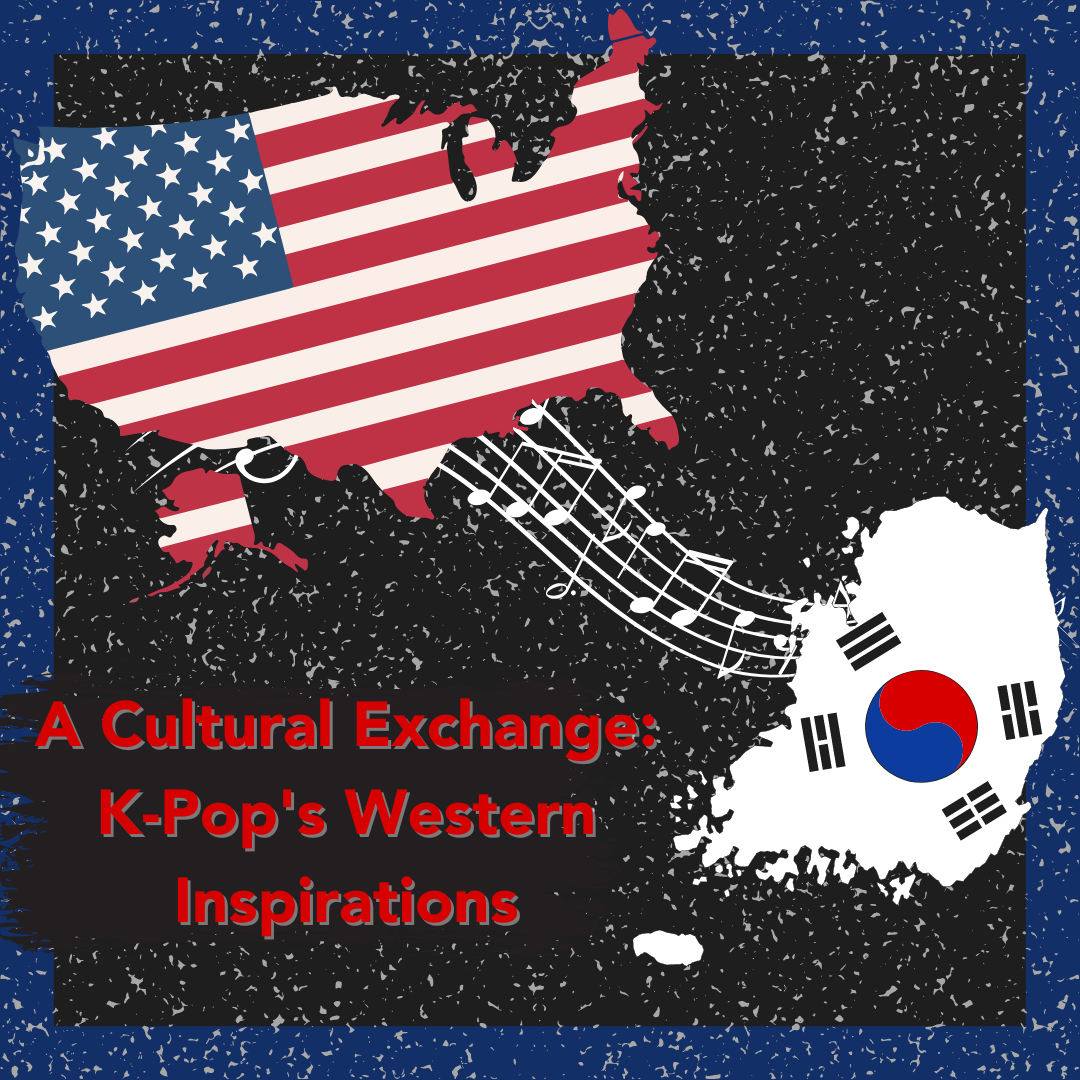K-pop has been around since the late 80’s and 90’s, though its popularity has soared to remarkable heights throughout the past couple of decades. Some of the first K-pop groups emerged in the ’90s, with groups such as Seo Taiji and Boys (known as the first K-pop group), Deux, Goofy, H.O.T, Koyote, and Sechs Kies. However, K-pop didn’t get much traction in America until the early 2000s.
One answer for the sudden popularity of K-pop is the song “Gangnam Style” by PSY in 2012. This viral song brought mass attention to the genre, even from people who had never heard of K-pop. Another answer for the sudden blow-up of the K-pop genre is that many K-pop groups were able to fill the gap left by early 2000s boy bands like Nsync and One Direction.
Some second-generation K-pop groups like SHINee, BIGBANG, and Wonder Girls would become popular in America, garnering more fans and bringing more attention to the genre. At this point, the K-pop industry began to expand rapidly, and there was a third generation. The genre has become a global phenomenon, with millions of fans worldwide and a monetary worth of over 8 billion US dollars. In the 90’s, three music studios entered the K-pop scene: SM Entertainment, YG Entertainment, and JYP Entertainment. Even now, these studios remain predominant in the K-pop scene, though more studios have also popped up, such as HYBE, Starship, and BigHit Entertainment. American record companies like Motown Records have had a significant influence on the way that early K-pop management companies operated. The way that Motown would train their signed artists to have a particular style and stage presence inspired South Korean record labels to do the same. Groups like Seo Taiji and Boys and G.O.D were some of the first to be shown off with a specific image, organized under a single label. These companies that groups were signed to would manage the artists’ promotion and production of their music. Around this time in the 90’s, cable TV came to South Korea, along with it, a South Korean version of MTV. Korea’s version of MTV was launched under the SBS Paramount Unity, a joint venture between SBS Medianet, Paramount Networks, and EMEAA. SBS MTV was an outlet for early K-pop idol culture. Although many early K-pop groups wouldn’t get much traction on television, it would still pave the way for future generations. K-pop began to go international in the early 2000s, with bands like Big Bang and Wonder Girls receiving critical acclaim. K-pop became increasingly popular in the West due to the popularity of BTS (short for Bangtan Boys), which started in 2010. Later, BTS was the first K-pop group to perform at the American Music Awards, an achievement that introduced them to millions of Western viewers. While listening to Kpop, you may notice that the sounds of many groups, old and new, are very similar to many popular hip-hop, pop, and R&B artists in America. America and Japan were the biggest inspirations for the K-pop sound, chiefly because of both countries’ ties to South Korea. During and after the Korean War, American soldiers brought then-popular American music, such as Elvis, Ray Charles, James Brown, and more. Even after the war, this music remained in South Korea for years, inspiring many South Korean musicians and artists.
Later, in 1988, South Korea lifted its travel restrictions, exposing many musicians and artists to more music styles from other countries and cultures. Most K-pop groups and South Korean musicians have incorporated elements of originality and traditional music into their own, creating a mixture of different genres and sounds.
On the topic of K-pops inspiration, I asked a fellow K-pop fan her thoughts on the topic. She said this: “Well, of course, there have been signs that Western music is influencing K-pop, hip-hop and R&B play a huge role in K-pop itself. Black music culture is very prominent in the music and the K-pop group’s “ Concepts. “ Even now a lot of K-pop artists mention how they take a lot of inspiration from “Tupac” “Jay-Z” and a multitude of other black artists. But this doesn’t necessarily take away from the fact that they make it beautiful in their ways of expressing themselves through music.”




